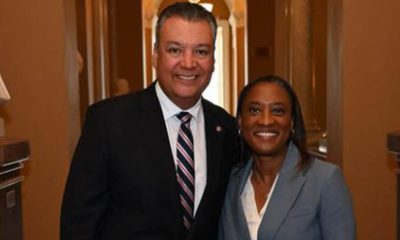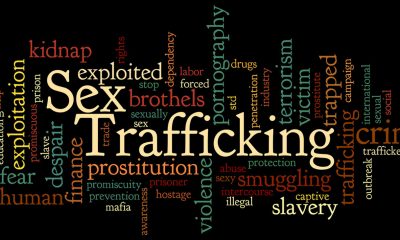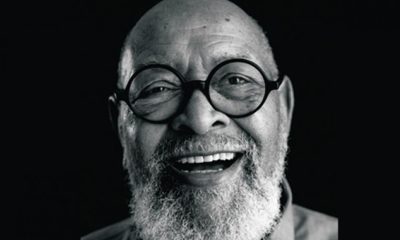Activism
Youth Mental Health Care: California’s Investments May Still Not Be Enough
In August, Gov. Gavin Newsom signed Assembly Bill (AB) 2508, authored by Assemblymember Sharon Quirk-Silva (D-Fullerton). The new state law, Newsom’s office says, reimagines youth mental health services by strengthening care systems in schools and focusing on intervention and prevention instead of crisis care.
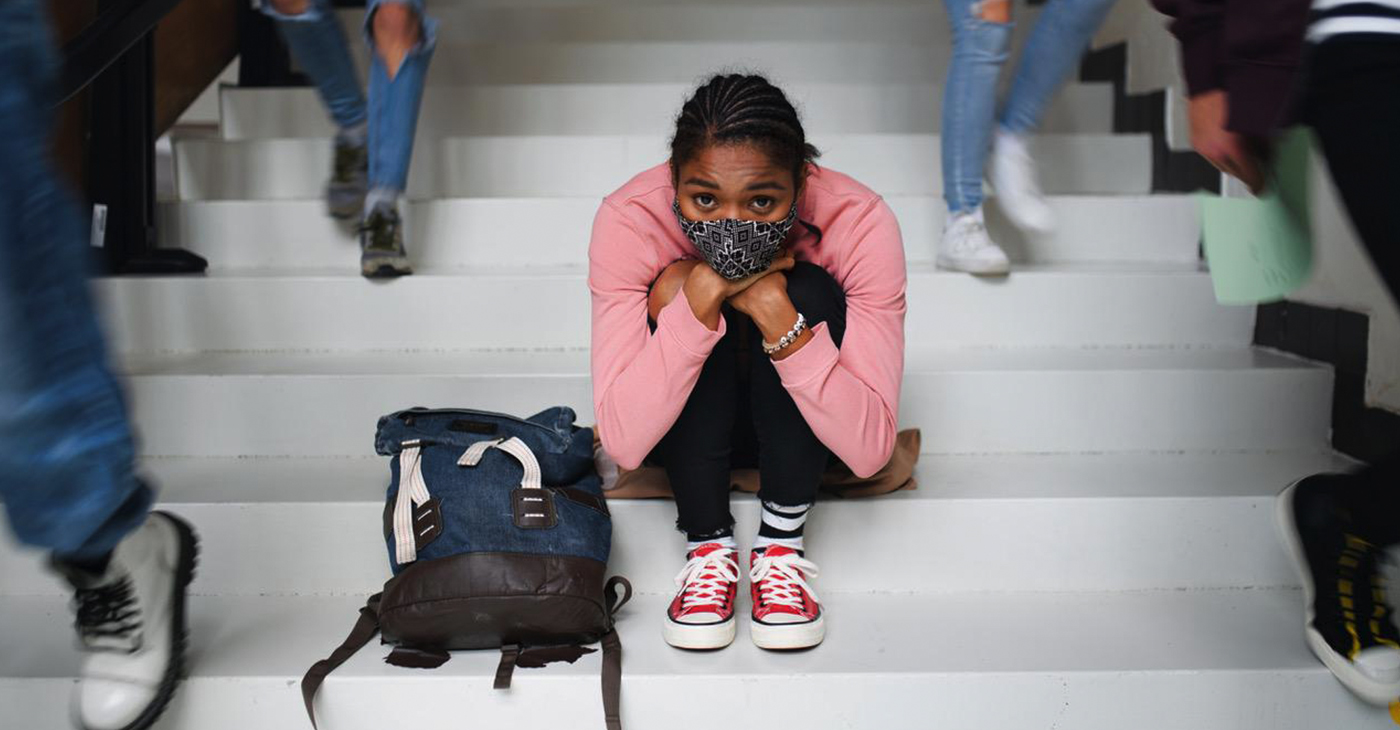
By Aldon Thomas Stiles, California Black Media
In August, The Children’s Partnership hosted a mental health panel centered around the voices of young girls and women of color. The session was organized as part of the organization’s Youth of Color initiative.
“I had never been surrounded by a group of people with the same experiences and the same struggles regarding mental health, regarding being a person of color,” said Samantha Giles.
Giles, a California teenager, is one of the Children’s Partnership’s youth panelists.
“I even got to go into a breakout room where we talked about how our parents don’t necessarily recognize our mental health struggles and I never really talked with someone else my age about my personal experience and their personal experience,” the teenager intimated.
Giles described the interactions she had with her peers as “eye opening.”
That same month, California Gov. Gavin Newsom announced his “Master Plan for Kids’ Mental Health,” an initiative that pumps $4.7 billion into the super-system providing mental health services to the state’s youth.
See the Video: California African American Teens Speak Out
Some advocates and public health officials say the governor’s announcement serves as an appropriate policy response to what experts are calling a mental health crisis in the state. They see it as a positive step the state is taking to address the under-treated and often overlooked challenges that youth like Giles are trying to overcome.
According to the California Health Care Foundation (CHCF), one in 14 children have experienced a mental or emotional disturbance that disrupts their day-to-day life.
Of the California adolescents who experienced major depressive episodes, 63.6% did not receive treatment for those incidents.
Newsom touts California’s response to the national mental health crisis over that of other states.
“As other states take away resources to support kids’ mental health, California is doubling down with the most significant overhaul of our mental health system in state history,” Newsom said. “We’re investing billions of dollars to ensure every California child has better access to comprehensive mental health and substance use services.”
Some notable organizations have praised the state’s commitment to children’s and young adults’ mental health.
“The state has made some incredible and historic investments in children and youth mental health and well-being – both with the $4 billion Children and Youth Behavioral Health Initiative and with the $3 billion Community Schools Initiative,” said Angela M. Vázquez, policy director at the Children’s Partnership.
However, Vázquez raised concerns about many of these funds being one-time investments that might not fully address the needs of children of color.
Vázquez’s concerns, which mirror those of several mental health advocates in communities of color, extend to Newsom’s pledge to add 40,000 more mental health workers to California.
“Still, the reality is that the clinical workforce is and will likely remain for some time largely white and middle-class – not at all reflective of the diversity of our state’s children,” Vázquez stated.
The Children’s Partnership is currently working on a solution to the existing inequity that the organization says involves peer-to-peer interactions.
“Youth of color from The Children’s Partnership’s own youth policy council, the Hope, Healing, and Health Collective shared that greater investments in peer-to-peer programs would improve the opportunities for youth of color to connect and heal with members of their own communities and identities,” Vázquez stated. “Peer support is an essential evidence-based strategy for young people’s mental health that has the potential to build interest and foundational professional skills that lead to future opportunities for mental health career paths for more students of color.”
Contributing to the state’s youth mental health crisis are other factors like the COVID-19 pandemic, experts say.
According to research published by the Journal of Racial and Ethnic Health Disparities, the state of mental health among Black people worsened during the COVID-19 pandemic with anxiety and depression being the main issues.
“These recent events have layered on additional psychological and emotional stress on children and youth of color, particularly Black youth,” Vázquez said. “In considering what serves young people well, it is imperative that we address the systemic barriers that have contributed to historic mental health disparities in youth, and develop innovative strategies, leaving space for healing outside of and in tandem with the traditional mental health system.”
The CHCF found that Black people had the hardest time among all other ethnic groups finding a doctor, especially a specialist.
In 2019, Black children in California were the most likely to experience serious emotional disturbances among children of all other racial groups at a rate of nearly 8%.
From 2017 to 2019, roughly 30% of Black 7th graders were projected to have experienced feelings of depression or depressive episodes.
These trends are not just documented among today’s Black children. African American adults are reported to have experienced more adverse childhood experiences that negatively impact their mental health more than any other ethnic group that self-reported, according to the CHCF.
In August, Newsom signed Assembly Bill (AB) 2508, authored by Assemblymember Sharon Quirk-Silva (D-Fullerton). The new state law, Newsom’s office says, reimagines youth mental health services by strengthening care systems in schools and focusing on intervention and prevention instead of crisis care.
The governor says the legislation will “better define the role of school counselors.”
But Vázquez has some reservations about that bill, too. She feels it does not fully address the mental health needs of all of the state’s children.
“One thing that AB 2508 does not address is the urgent need for greater investments in California’s youngest learners’ mental health – children ages 0-5,” Vázquez stated. “The state needs to invest significantly more resources in community-based infant and early childhood mental health services, such as early childhood mental health consultations – an evidence-based model that reduces the number of preschool suspensions and expulsions, an issue that has significant disproportionate impacts on young Black children.”
California Black Media’s coverage of Mental Health in California is supported by the California Health Care Foundation.
Activism
Calif. Anti-Sex Trafficking Advocates Discuss Competing Bills, Strategies
Advocates from across California are challenging state officials and community leaders to support legislation that provides resources and services for survivors and victims of human trafficking, as well as assistance as they transition back into civil society. Some of those advocates are also calling for more effective state policy to curtail trafficking, a crime that has an outsized impact on Black children, particularly girls.
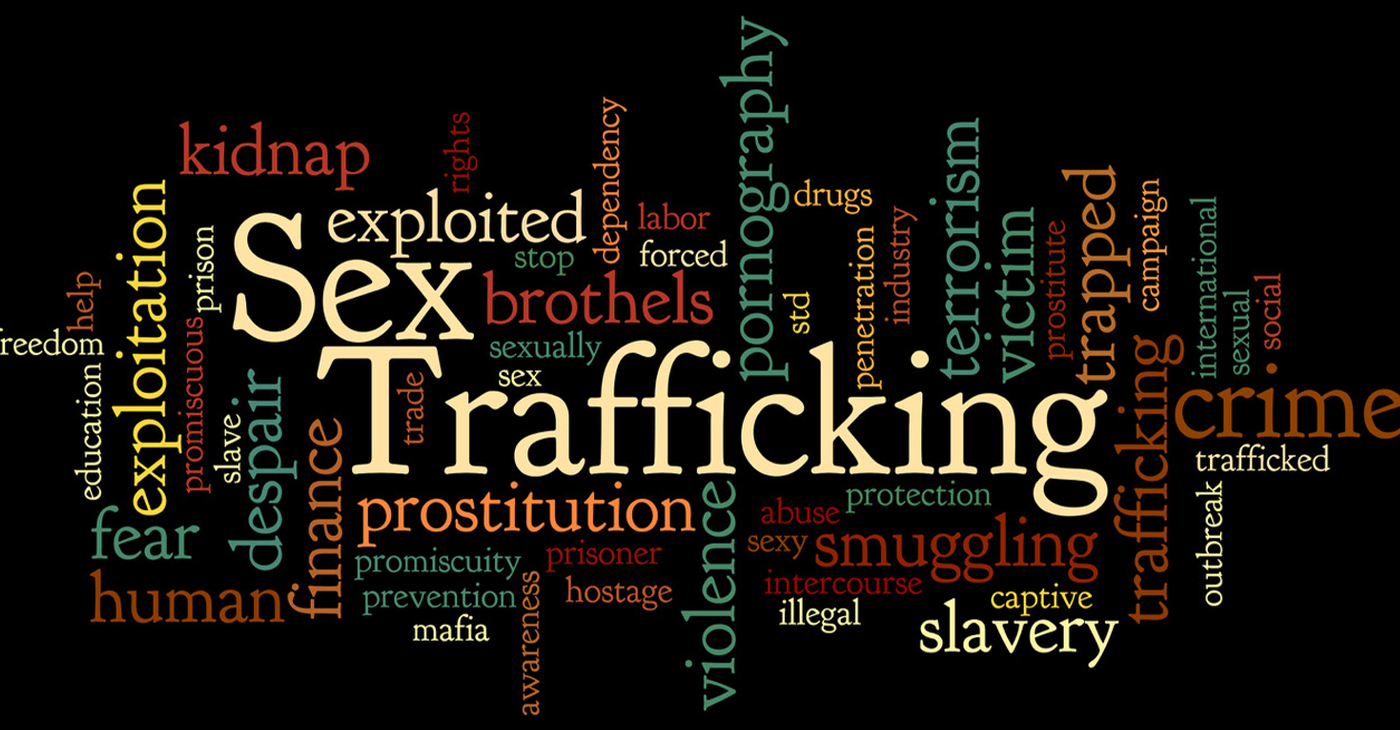
By Bo Tefu, California Black Media
Advocates from across California are challenging state officials and community leaders to support legislation that provides resources and services for survivors and victims of human trafficking, as well as assistance as they transition back into civil society.
Some of those advocates are also calling for more effective state policy to curtail trafficking, a crime that has an outsized impact on Black children, particularly girls.
According to the FBI, a report covering a two-year period found Black children accounted for 57% of all juvenile arrests for prostitution. In addition, 40% of sex trafficking victims were Black and 60% of those victims had been enrolled in the foster care system.
“It is time to hold the perpetrators who take advantage of our children accountable,” said the Rev. Shane Harris, a San Diego-based activist, former foster youth and founder of the Peoples Association of Justice Advocates, (PAJA), a national civil rights organization and policy think tank.
“It is time to send a thorough message that if you seek to buy a child for sex, you will pay the highest criminal penalties in this state,” added Harris who was speaking at a rally at the State Capitol earlier this month. Harris was speaking in support of Senate Bill 1414, authored by Sen. Shannon Grove (D-Bakersfield), which calls for people who buy sex from minors to be punished with a felony. The punishment includes a two-year prison sentence and a $25,000 fine.
Harris said the PAJA is the only civil rights organization in the state that supports SB 1414.
Harris urged other Black-led groups who favor anti-trafficking legislation more focused on criminal justice reforms (as opposed to stiffer penalties), to “join the movement.”
Many of those civil rights groups fear that SB 1414 could lead to the incarceration of more Black youth.
Those sentiments were echoed in a panel discussion organized by Black women advocates on April 26 to examine the cause and effects of human trafficking in California’s Black communities. The virtual event was hosted by the Forgotten Children, Inc, a faith-based nonprofit that advocates for survivors and victims of human trafficking through anti-trafficking campaigns and initiatives.
Panelists shared the psychological impact of sexual exploitation on youth and children in the long term.
Author and educator Dr. Stephany Powell shared statistics and information revealing that African American women and girls are the most trafficked nationwide.
Powell, who serves as the senior advisor on law enforcement and policy at the National Center on Sexual Exploitation said that national data indicates that sex trade survivors are disproportionately women of color. She stated that male survivors often go unnoticed because boys rarely report trafficked crimes.
Powell said that decriminalizing prostitution in California could increase human trafficking. She argued that Senate Bill 357, authored by Sen. Scott Wiener (D-San Francisco), which was signed into law in 2022 and legalized loitering for prostitution, caused a surge in street-level prostitution.
Panelist and psychologist Dr. Gloria Morrow shared opposing views on decriminalizing prostitution. She said that decriminalizing prostitution could help survivors gain access to state resources and support.
Despite opposing views, Powell and Morrow agree that the Black community needs resources and educational programs to address human trafficking.
Activism
Obituary: Social Justice Leader, the Rev. Cecil Williams, Passes at 94
On April 22, community leader and social justice advocate Reverend Cecil Williams died at his home in San Francisco surrounded by his loved ones, according to his family. He was 94 years old.
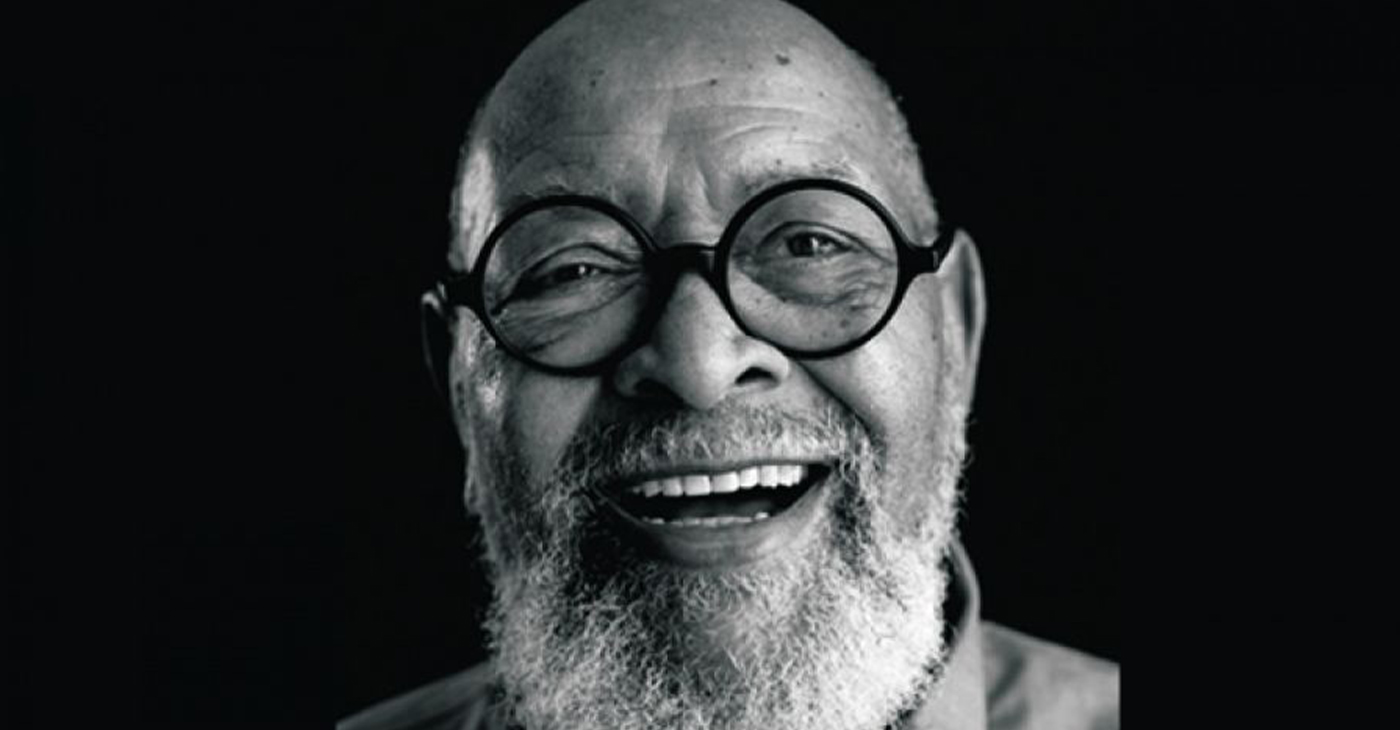
By California Black Media
On April 22, community leader and social justice advocate Reverend Cecil Williams died at his home in San Francisco surrounded by his loved ones, according to his family.
He was 94 years old.
The reverend was a civil rights leader who advocated for the equal rights of lesbian, gay, bisexual, transgender, and queer people in the Bay Area.
Williams was the head pastor of the non-denominational GLIDE Memorial United Methodist Church. The church welcomed individuals from the queer community and people struggling with homelessness, housing instability and substance use disorder (SUD).
Through his work, Rev. Williams attracted national attention. Prominent political and cultural leaders such as Maya Angelou, Bono, Oprah Winfrey, and Bill Clinton all attended church services at Glide.
Congressmember Barbara Lee (D-CA-12) said she is deeply saddened about the passing of her dear friend.
“The Reverend changed the lives of millions through radical love, support, inclusivity, and a commitment to service to the most marginalized,” Lee said.
Gov. Gavin Newsom said that the reverend inspired people across California to embody the values of generosity and acceptance.
Rev. Williams was, “a visionary leader whose legendary compassion and love for his community transformed the lives of people from all walks of life,” Newsom said.
Rev. Williams served as the chief executive officer of the Glide Foundation until his retirement in 2023.
Activism
Oakland Post: Week of May 1 – 7, 2024
The printed Weekly Edition of the Oakland Post: Week of May 1 – 7, 2024

To enlarge your view of this issue, use the slider, magnifying glass icon or full page icon in the lower right corner of the browser window. ![]()
-

 Community2 weeks ago
Community2 weeks agoFinancial Assistance Bill for Descendants of Enslaved Persons to Help Them Purchase, Own, or Maintain a Home
-

 Activism4 weeks ago
Activism4 weeks agoOakland Post: Week of April 3 – 6, 2024
-

 Business2 weeks ago
Business2 weeks agoV.P. Kamala Harris: Americans With Criminal Records Will Soon Be Eligible for SBA Loans
-

 Community2 weeks ago
Community2 weeks agoAG Bonta Says Oakland School Leaders Should Comply with State Laws to Avoid ‘Disparate Harm’ When Closing or Merging Schools
-

 Activism3 weeks ago
Activism3 weeks agoOakland Post: Week of April 10 – 16, 2024
-

 Community2 weeks ago
Community2 weeks agoOakland WNBA Player to be Inducted Into Hall of Fame
-

 Community2 weeks ago
Community2 weeks agoRichmond Nonprofit Helps Ex-Felons Get Back on Their Feet
-

 Community2 weeks ago
Community2 weeks agoRPAL to Rename Technology Center for Retired Police Captain Arthur Lee Johnson


